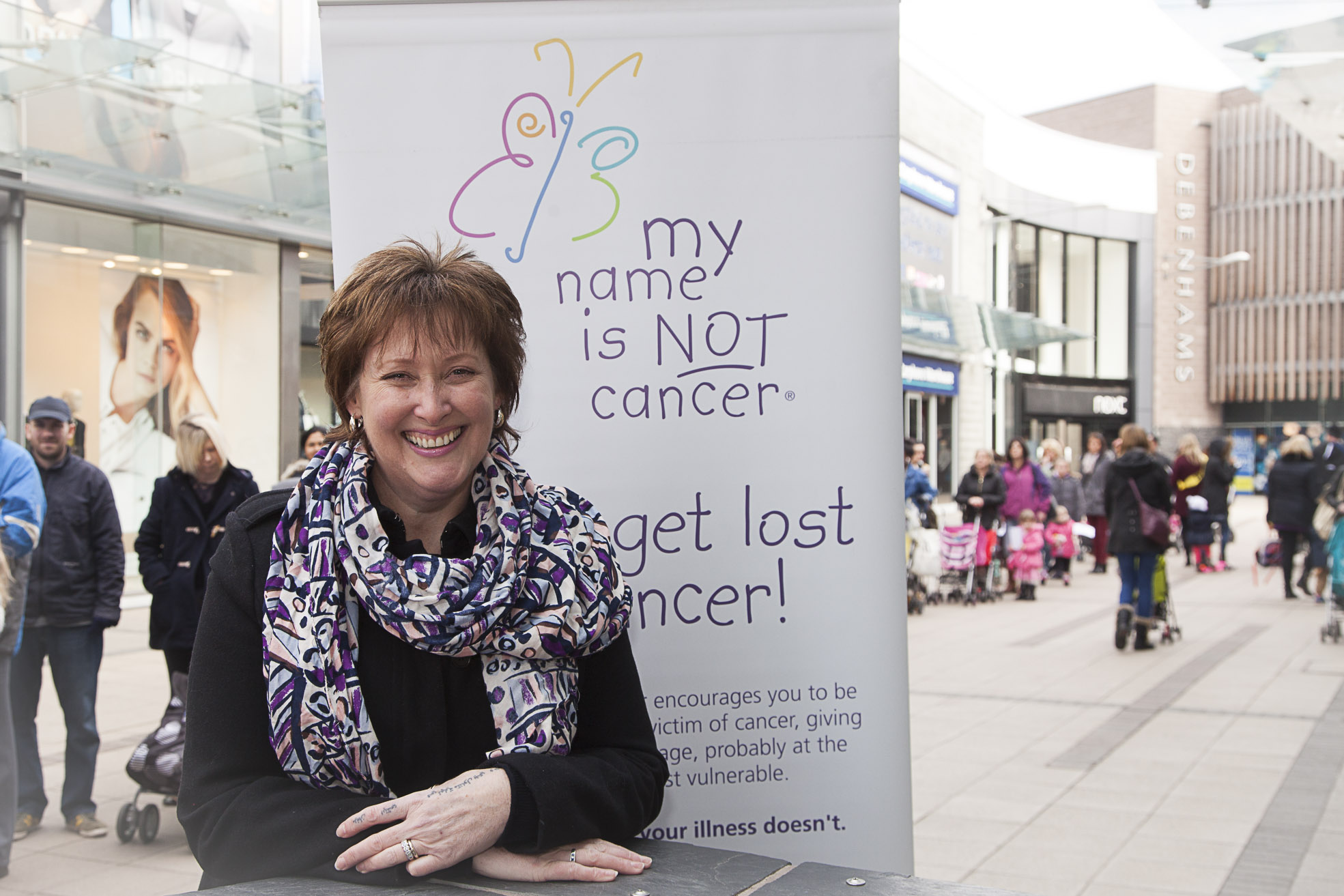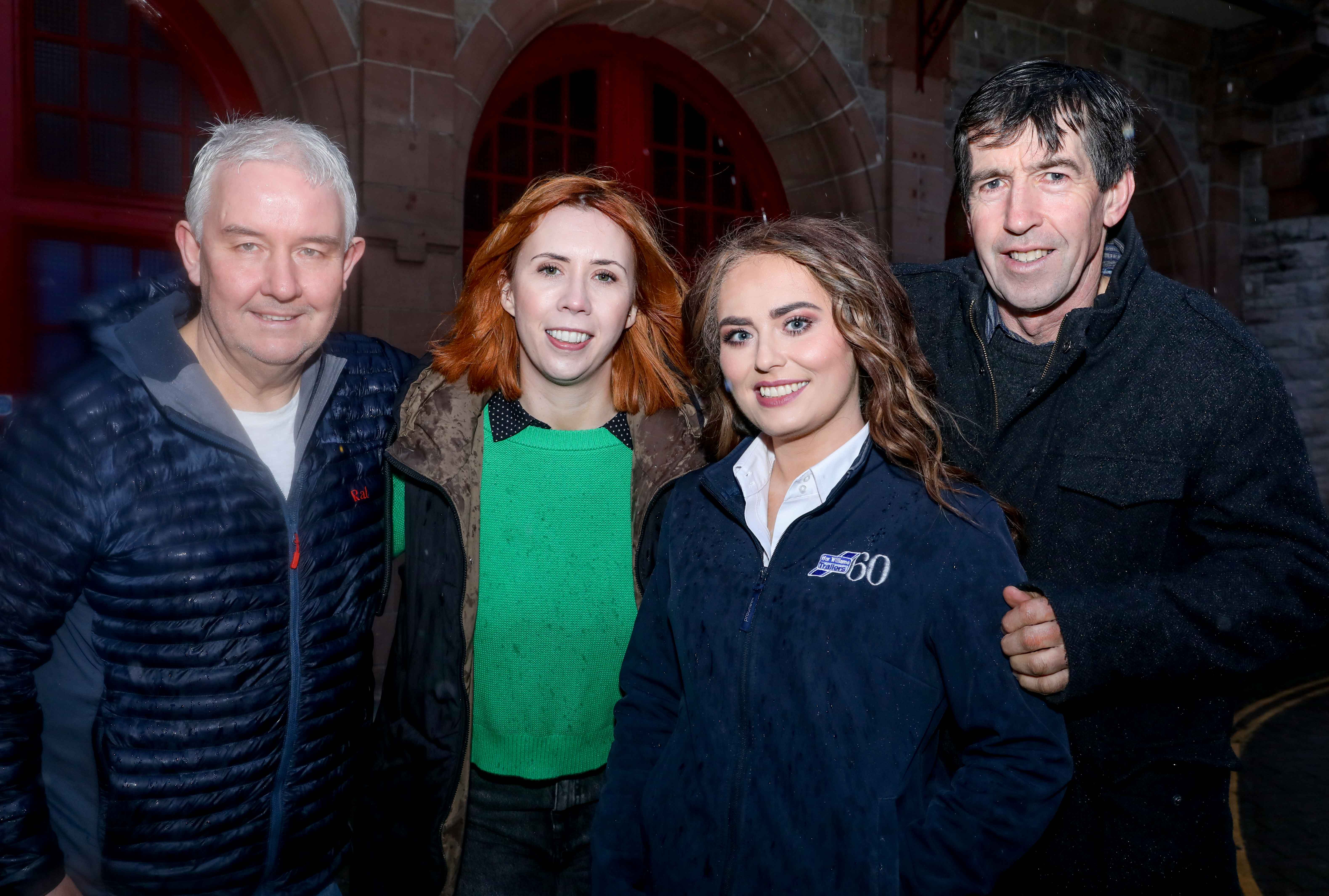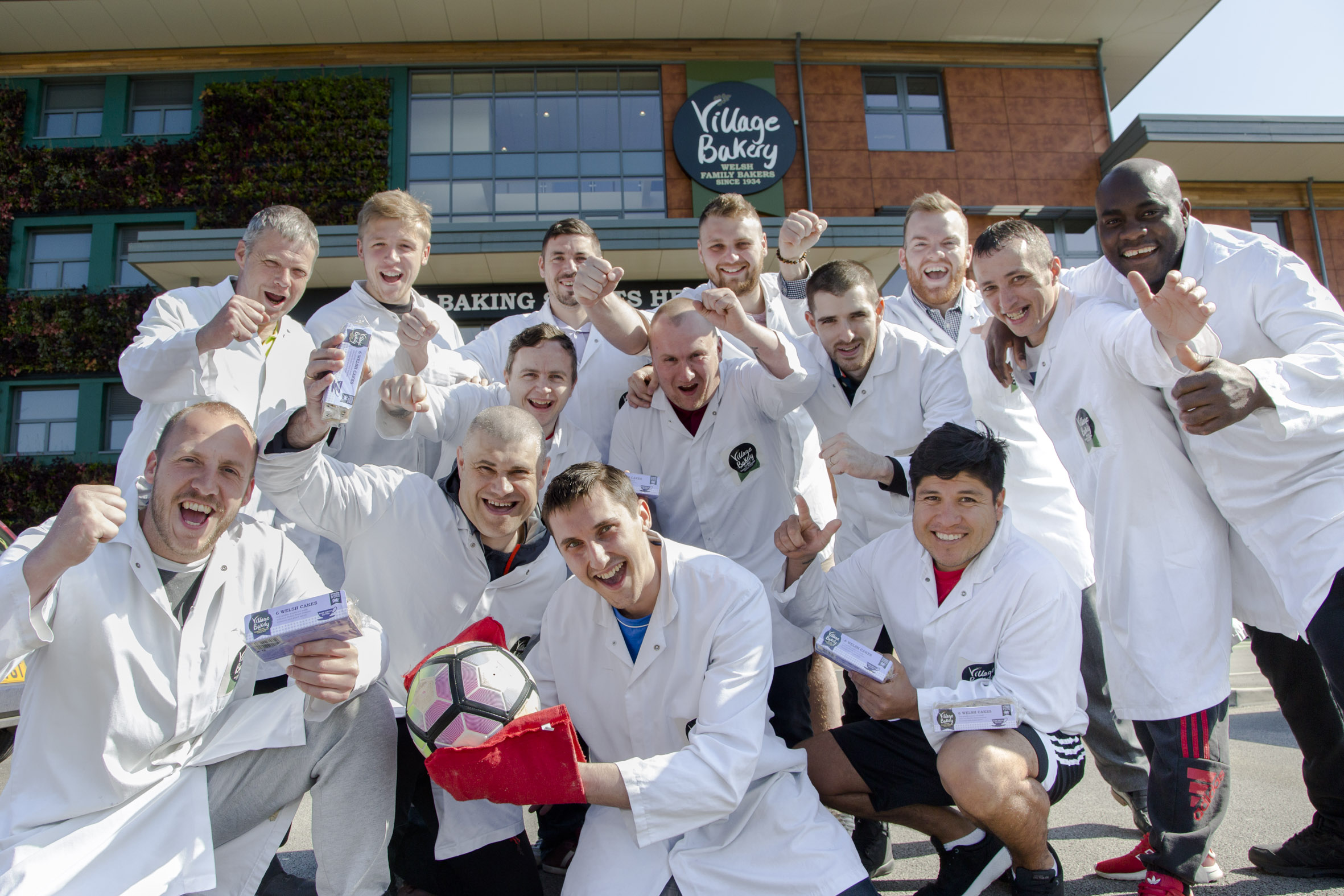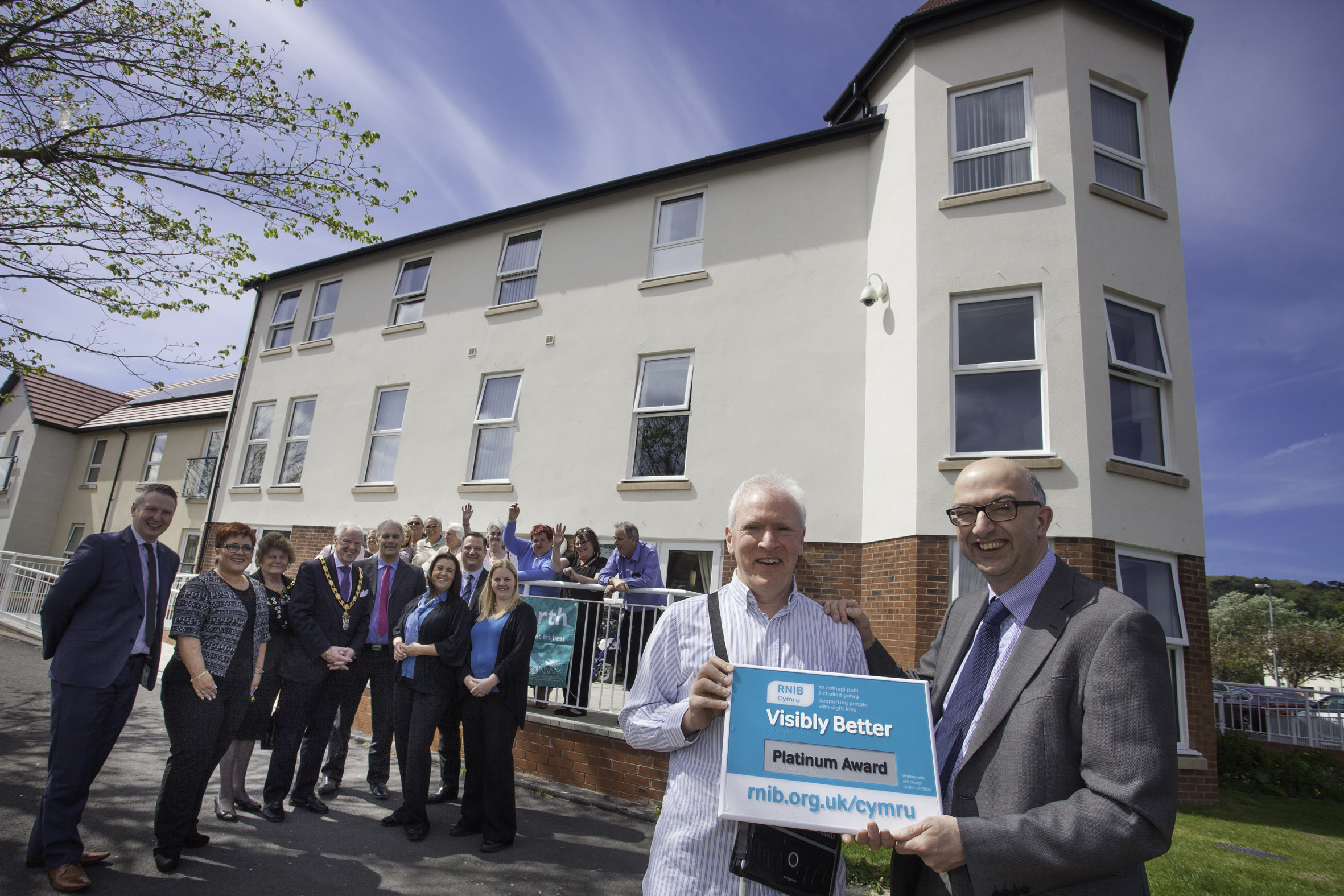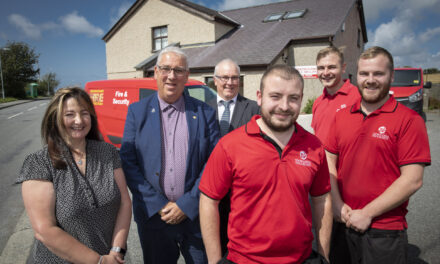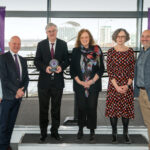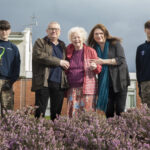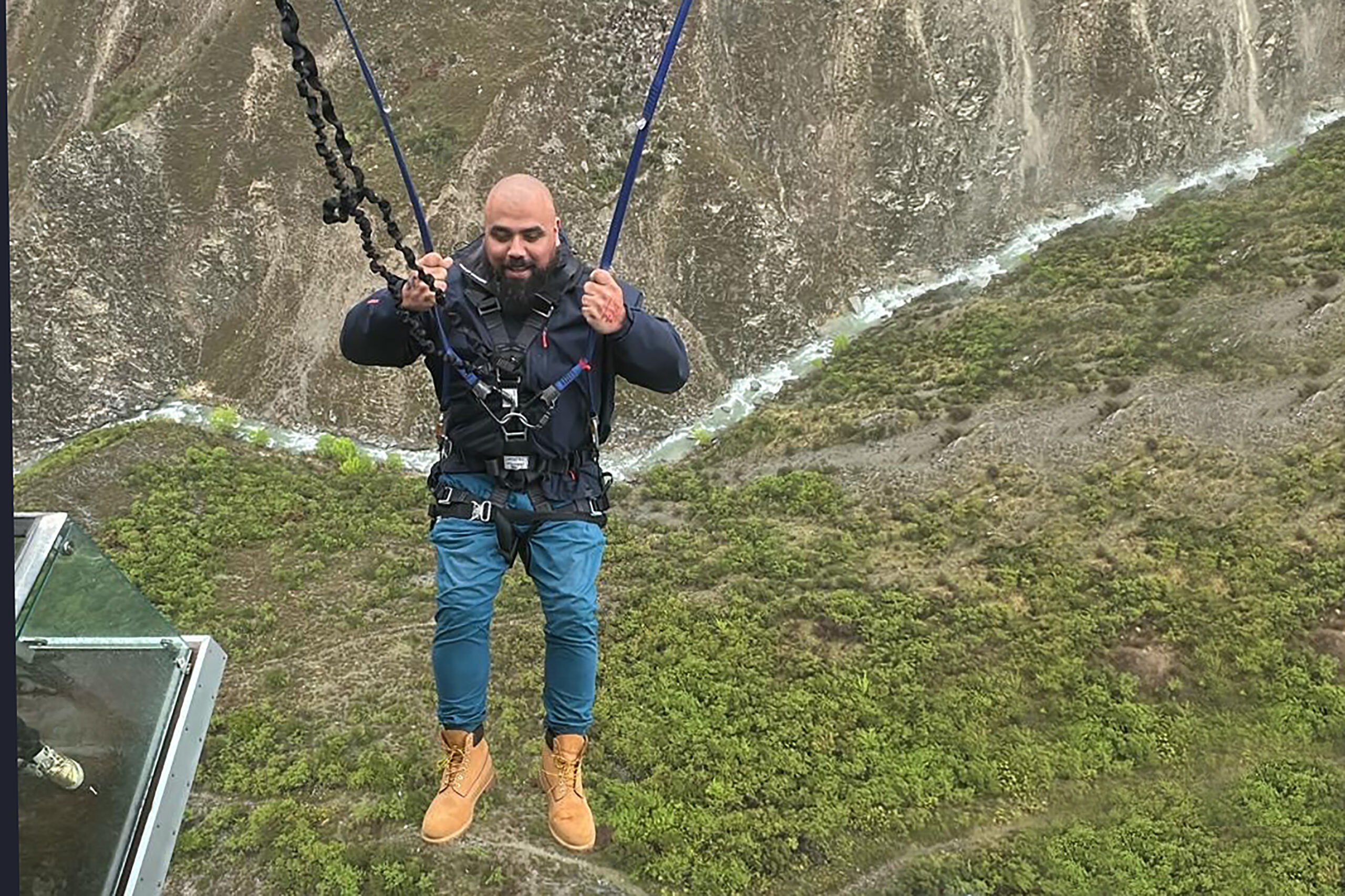A bereaved mum is on a mission to support people living with cancer.
Fiona Fletcher, 51, whose daughter Megan died of cancer in her arms aged just 21, will be at Eagles Meadow shopping centre, in Wrexham on Sunday April 26.
It was only after her death Fiona discovered that Megan had used her precious time to write advice for other sufferers.
Megan’s mantra was ‘My name is NOT cancer’ (MNINC) and the idea has evolved into a cancer support organisation empowering sufferers to maintain their identity and a sense of self.
It offers sound practical advice, expands on Megan’s work, including even her poetry, and invites contributions and experiences from others.
With a group of volunteers Fiona will be at Eagles Meadow to let people know about ‘My Name is NOT Cancer Identity Day’, which is on Monday May 4. It is all about how not to become a victim of cancer and how to retain your identity.
Fiona, of Wern, Bersham, said: “This is coming to the third year of the ‘My Name is NOT Cancer Identity Day’. It is a continuation of Megan’s legacy.
“I’m going to be raising awareness of it at Eagles Meadow and we’ll also be selling the butterfly badges. It’s the symbol of the organisation.
“I’m going to do a 10k walk on ‘My Name is NOT Cancer Identity Day’. I haven’t decided where yet, but it will be somewhere near home. Megan loved the area. I’ll probably include part of the Clywedog Trail which was one of her favourites.
“It’ll be a day of contemplation. When I get back home after the walk I’ll have a drink and put on some of Megan’s favourite music. If she was still with us she would probably go out partying to celebrate.
“Everyone can celebrate it in their own way. It might be going for a nice meal with your family, it might be going down the pub. Some people might just want to sit in quiet refection.”
Fiona added: “The My Name is NOT Cancer website is not a memorial to Megan. It is a resource for patients, the real people who are facing this disease, to give them confidence to say ‘I’m still me’.
“I hope the professionals will look at it and do more to help people retain their sense of self – and that it is not just about a treatment regime.”
My Name Is NOT Cancer is now available at cancer treatment centres across the UK, in New York, Italy and also the Middle East, where Fiona, Megan, her youngest daughter Rebecca, and husband Ian, lived for 10 years and where Ian is still working in the oil and gas industry.
But Fiona gets calls from all over the world from people who have been inspired by the website and My Name Is NOT Cancer pages on Facebook and has already translated the publication into Italian, with further requests to make it available in French, Spanish, Italian, German, Arabic and Greek.
She is also being invited to collaborate with other cancer organisations and speak at conferences.
Megan went to primary school in Minera and secondary school in Dubai when the family moved to the Middle East to live what Fiona describes as the big family “adventure”.
Megan enrolled in Plymouth University to study Human Biosciences. But by 20 she had been diagnosed with Refractory Hodgkin’s Lymphoma, an aggressive cancer type which proved resistant to an array of chemotherapy treatments.
Before university she had taken a gap year and became a qualified Divemaster. At university she was a member of the basketball team. Even through her illness, Megan completed her first year of studies and the university awarded a posthumous degree to her family at an emotional ceremony on what would have been her 22nd birthday.
“She was ill for 16 months and experienced all the different emotions which go along with being diagnosed with cancer.
“It was during that time she was supported by many remarkable organisations that offered her financial and practical support, however emotionally. She felt she was getting lost in having everything having cancer entails and it resulted in Megan feeling incredibly lonely during her journey with cancer.
“Megan then created hints, tips and advice for other people to help them take their identity back from their illness, feel empowered to express their needs and encourage better communication with all people involved in their care: healthcare professional, family and friends,” said Fiona.
Megan’s aim, and the quest of MNINC was “to encourage any individual whether newly diagnosed, treated, recovered or life limited, to understand cancer does not define them; it is not their identity.”
She never accepted her life limited (terminal) diagnosis. Ten days before she died she was horse riding. It was that determination, her thirst for life, which made Fiona realise she had a responsibility to do something with Megan’s work.
“I sat on it for some time while we were trying to come to terms with the grief and the loss. But I felt increasingly compelled to help others facing similar situations,” said Fiona.
“Megan had the determination to live her life her way and to the ultimate and that gave her control.”
Megan wanted cancer sufferers to feel positive and empowered, not overwhelmed by the disease and the treatment process. And her conclusions, and the advice found on the website have struck a chord.
MNINC is a not-for-profit organisation which seeks nothing more than to cover its costs – thousands of the pamphlets have been distributed to doctors’ surgeries, hospitals, youth services and palliative care centres.
“I have no preconceived ideas about where this is going, the people who read the MNINC publication and access the site will decide.”
Eagles Meadow manager Kevin Critchley added: “I think ‘My Name is NOT Cancer Identity Day’ is a wonderful way to deal with something negative and turn it into a positive. I’m delighted that Fiona is coming down to Eagles Meadow to let people know all about it.”
The website, which contains instructions how to obtain the pamphlet, is www.mynameisnotcancer.com

